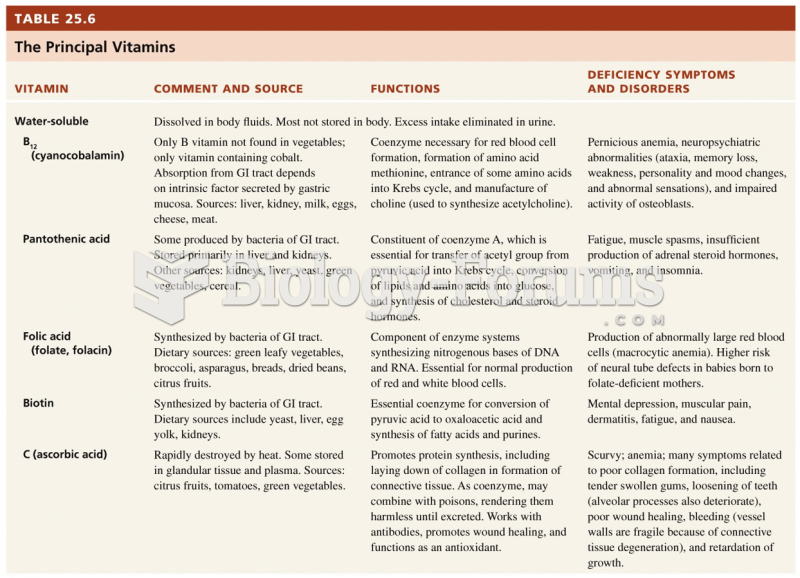|
|
|
Most childhood vaccines are 90–99% effective in preventing disease. Side effects are rarely serious.
In 1885, the Lloyd Manufacturing Company of Albany, New York, promoted and sold "Cocaine Toothache Drops" at 15 cents per bottle! In 1914, the Harrison Narcotic Act brought the sale and distribution of this drug under federal control.
The calories found in one piece of cherry cheesecake could light a 60-watt light bulb for 1.5 hours.
Cutaneous mucormycosis is a rare fungal infection that has been fatal in at least 29% of cases, and in as many as 83% of cases, depending on the patient's health prior to infection. It has occurred often after natural disasters such as tornados, and early treatment is essential.
ACTH levels are normally highest in the early morning (between 6 and 8 A.M.) and lowest in the evening (between 6 and 11 P.M.). Therefore, a doctor who suspects abnormal levels looks for low ACTH in the morning and high ACTH in the evening.
 Phyllis Schlafly drew much of her support from working-class women who were left vulnerable by the ...
Phyllis Schlafly drew much of her support from working-class women who were left vulnerable by the ...
 Men and women work the same number of hours a week, but men spend more time on paid work, and women ...
Men and women work the same number of hours a week, but men spend more time on paid work, and women ...





